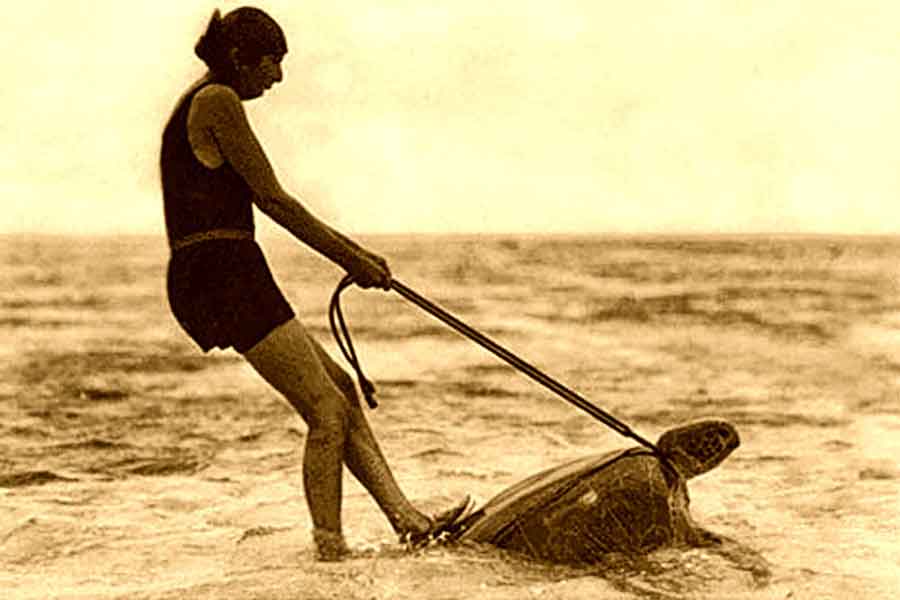
Back in 1930, National Geographic published this photo taken on Mast Head Island Beach in Australia. In that place, a group of young high society individuals would engage in races on the backs of green turtles that were caught off guard as they arrived on the beach for their annual egg-laying. Scenes like this are unthinkable in today’s world.
People of that time believed that the sea was an inexhaustible source of resources, and there was no respect for animal life as a whole.
The society of the ’30s was convinced that animals were objects that humans could use and even mistreat solely for the purpose of obtaining entertainment. They had yet to know the meaning of the word «ecology.»
In 1946, more than eight hundred whales stranded on the coast of Mar del Plata City in Argentina, becoming the largest recorded mass stranding in history. Photos from that time show the city’s inhabitants standing with their hands in their pockets, watching the whale calves drown in their own blood. Not a single attempt was made to return an animal to the sea. If such an event were to happen again today, the response would be different. The city’s residents would flock to the beaches in a desperate attempt to save the stranded animals’ lives. Municipal and private machinery would be used. Thousands of people would arrive from distant cities to help, resulting in an incredible mass movement.
The world is changing because people are changing. Information about ecology is readily available to anyone. The first step towards a radical change in environmental defense is information. Today, the world is informed. Today, we know that there are millions of us worldwide who want peace, who defend life, who want a world without missiles but with whales. We will win this fight because we are many, and because we are right.
Thank you for sharing the trench.
«You cannot defend what you do not love, and you cannot love what you do not know.»

